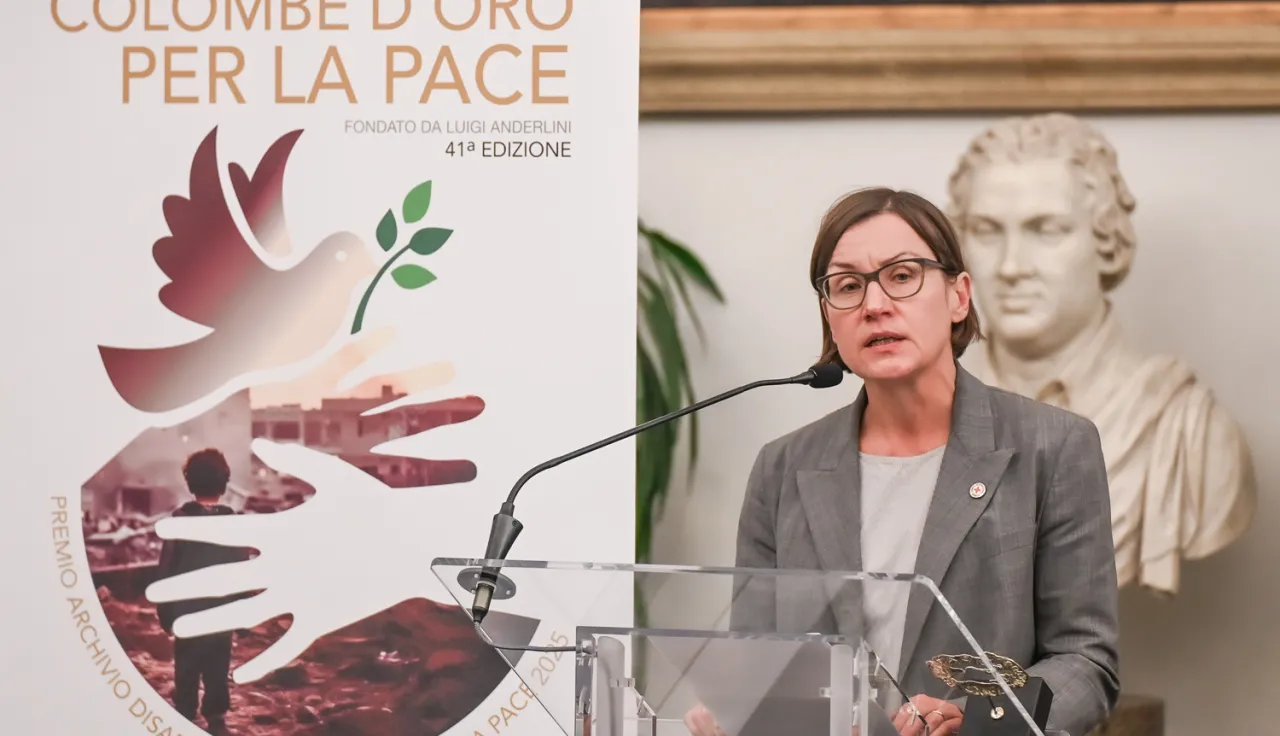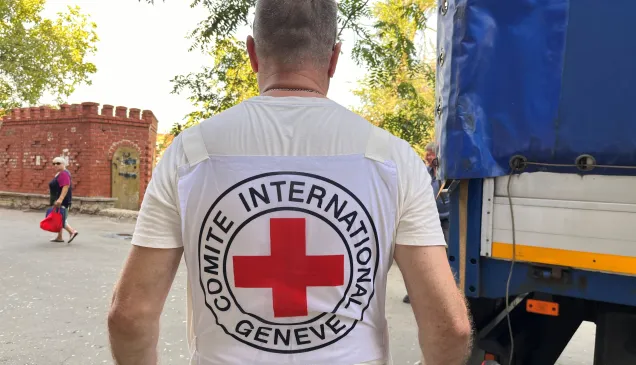Colleagues, distinguished guests,
The International Committee of the Red Cross (ICRC) is honoured to receive the Golden Dove for Peace International Award at a time when our humanity is both tested and needed.
There are more than 130 armed conflicts classified by the ICRC across the world today. This is two times the number we recorded 15 years ago. At the same time, the rules of war are often discarded or distorted to justify killing rather than prevent it.
We are also witnessing a seismic shift in how wars are fought. Drones, autonomous weapons systems, and cyber-attacks are reshaping the battlefield. Life-and-death decisions cannot be delegated to sensors and algorithms. States must ensure that the weapons they are developing and investing in comply with international humanitarian law.
The world cannot afford limitless war, and the world cannot sustain total victory. I am convinced that respect for the rules of war, combined with neutral, impartial humanitarian action, can help remove obstacles to peace and lay the foundations for reconciliation.
When respected, international humanitarian law limits the cruelty of war. It restrains our worst instincts. It affirms the fundamental truth that every human life is equally deserving of protection. And in doing so, preserves the social fabric necessary for peace.
This is not theoretical. It is one that irreversibly impacts the lives of millions of people living in conflict zones across the world. ¬When cities are levelled, when hospitals are bombed and communities forced to flee, the very foundations of society are destroyed.
From our experience, the first steps towards peace are always humanitarian. This is where the role of a neutral intermediary like the International Committee of the Red Cross becomes essential.
The ICRC is not a peacebuilding organisation. We are not mediators or negotiators. But by not taking sides, we are able to work between warring parties to carry out humanitarian steps that can help pave the way for further de-escalation.
Throughout our history, the ICRC has facilitated prisoner exchanges, civilian evacuations and humanitarian corridors. These are not just acts of relief; they help foster fragile threads of communication between warring sides.
Since 1934, the ICRC has been mentioned in about 150 peace instruments like ceasefire agreements, peace accords and other frameworks. This is primarily due to the role we play outlined in the Geneva Conventions of 1949.
Just this past week, ICRC teams in Israel, Gaza and the West Bank returned 20 hostages and more than 1,800 Palestinians to their families as part of the agreement reached between Israel and Hamas. We also carried out multiple operations to return the remains of the deceased. These operations are still ongoing.
You all saw the images of family members embracing and tears of joy after months apart. It’s the moment these families have waited in agony for and feared might never come.
Ensuring people’s safe return was a great responsibility for our teams. We flew in staff from as far away as Kinshasa to support it. These operations are highly complex and dangerous to carry out efficiently and safely. Our teams need to navigate roads littered with unexploded ordnance. Some of them took place late at night. And all of them require constant contact with the parties to execute.
I want to say here that I am proud of my team, I am proud of the Red Cross, and I stand tonight with the Red Cross and Red Crescent family.
But our work is not over.
More families are anxiously waiting to receive their loved ones and deserve closure. Families will not give up and neither will we. We will do this work for as long as it takes, and the parties must hold to their commitments under the ceasefire agreement.
And I want to say here: I don’t see an alternative in Gaza but for a ceasefire.




